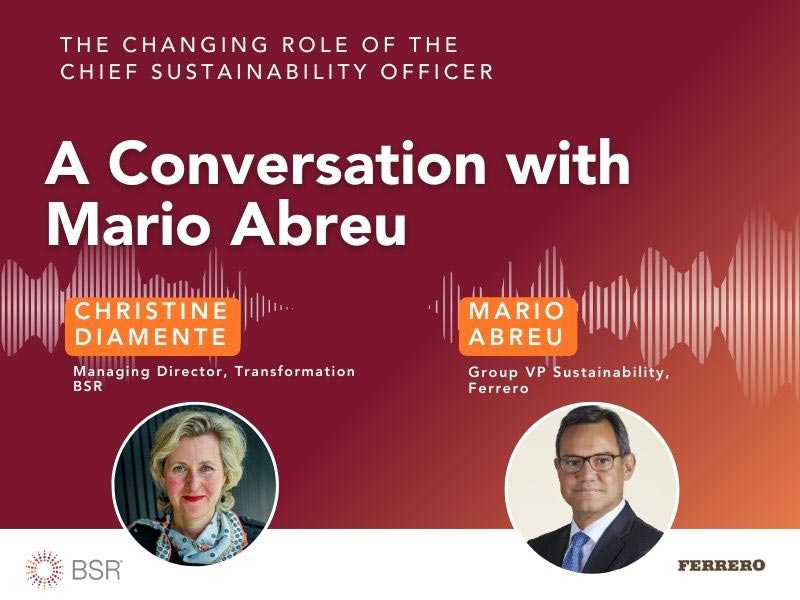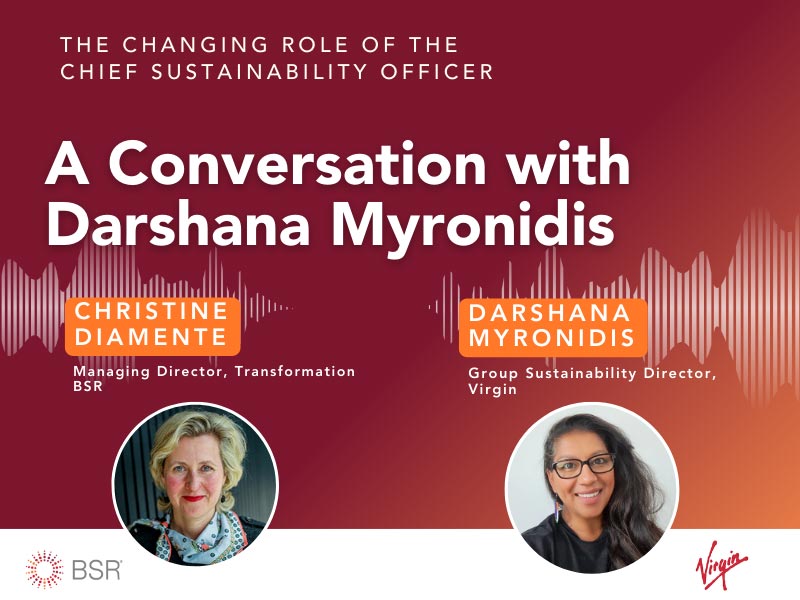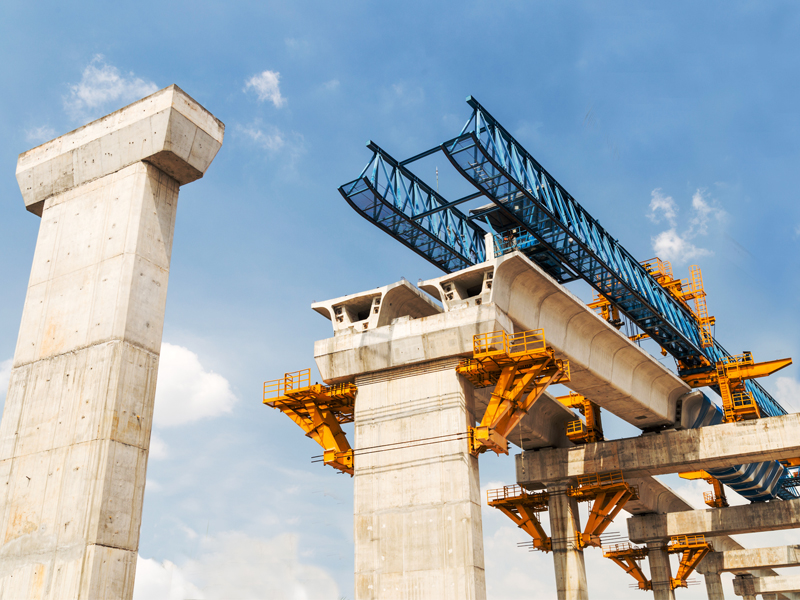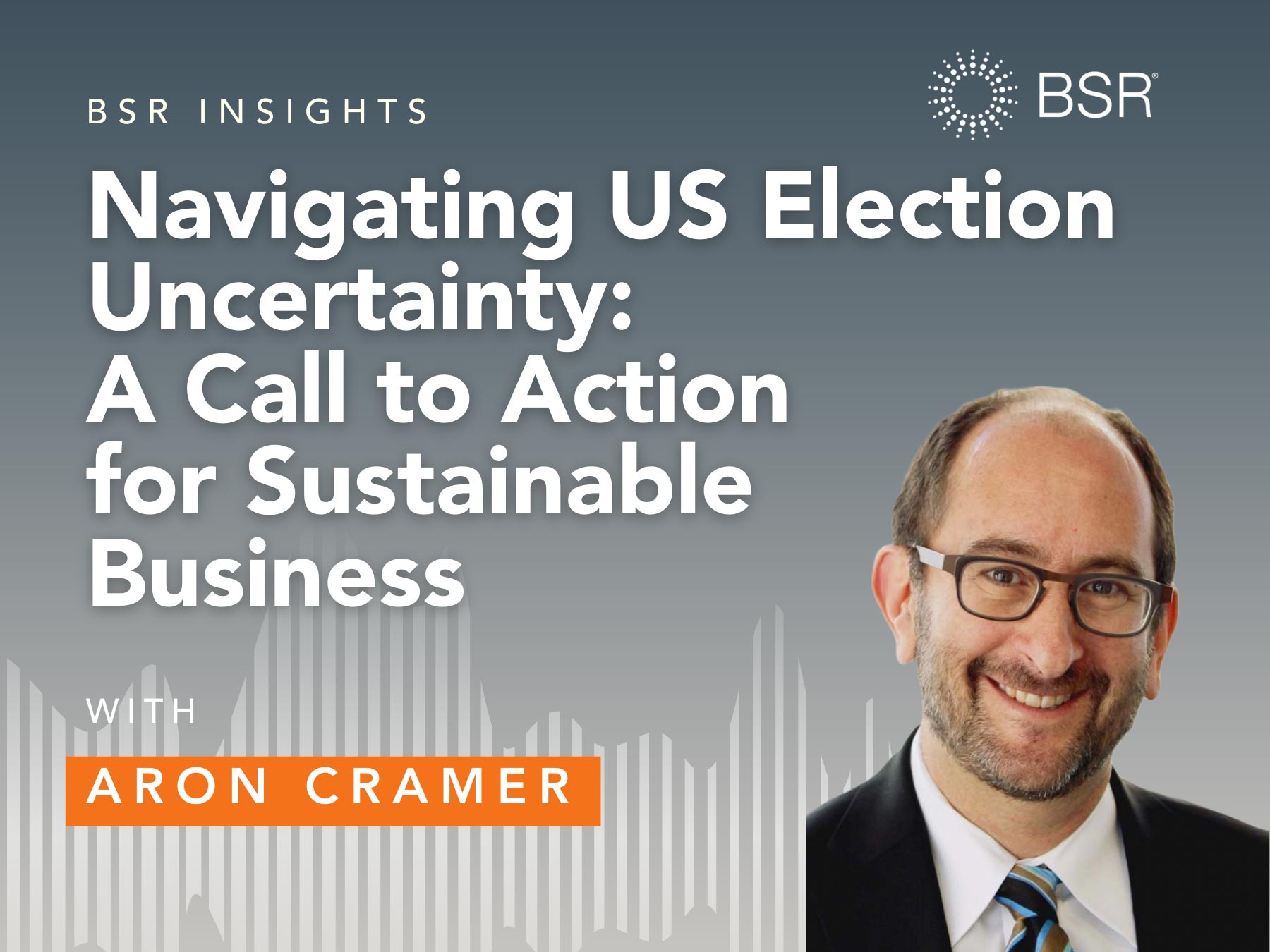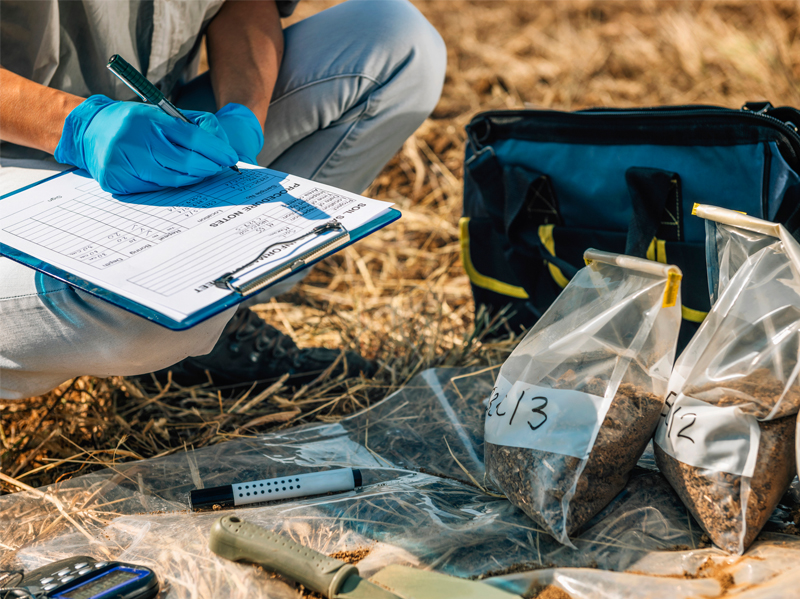
Authors
Conviviality. This notion of bringing people together was highlighted at BSR Conference 2020 by plenary speaker Ann Mukherjee, chairman and CEO of Pernod Ricard North America. In this year of social distancing and remote work, there have been few opportunities to truly feel such a spirit of togetherness. And yet, this past week, the first ever virtual BSR Conference delivered this feeling—for me, for many others I spoke with, and hopefully, for all who tuned in.
While this year’s experience has been different from the in-person gatherings of the past, both the sense of community among the hundreds of participants that joined us and the sense of urgency to address the most pressing issues in sustainable business were as strong as ever. With the theme of Meet the Moment. Build the Future., our program aimed to help the sustainable business community see our changing world more clearly—with inspiration about how companies are managing the difficulties of 2020 and the ones still to come, with focus on the work needed to meet the moment and all its challenges, and with ambition to shape a more equitable and resilient future.

Be Uncomfortable
“We have to get comfortable with being uncomfortable,” Anthony Romero, executive director of the American Civil Liberties Union (ACLU), told us in his plenary session. The theme of getting “uncomfortable” surfaced throughout the week, especially while discussing how business can address issues of racial and social injustice—which it must do to meet the moment of 2020. Both business and the field of sustainability must address the lack of and pressing need for increased diversity, equity, and inclusion (DEI). And being uncomfortable with these topics or unsure of what to do is no reason to turn away from the work.
The same can be said with the process of business transformation. For business to step up to its role in meeting the moment, sustainability and resilience needs to be integrated throughout the entire business. As Kering Chairman and CEO François-Henri Pinault said, “If you really want to put sustainability at the heart of your strategy, you have to rethink all processes and all ways you do business in your company.” No doubt rethinking all processes will be uncomfortable, but it is what’s necessary to create the future we want.
Put People First
Our conference conversations ran across a wide range of topics, from environmental, social, and governance (ESG) investing to health data privacy to supply chains in Asia. Throughout the week, sessions repeatedly highlighted the S of ESG: putting people at the center of all sustainability work. As an example, climate justice “has brought to the center the people who are most impacted by climate change,” according to Darren Walker, president of the Ford Foundation—a shift from the previous focus on environmental impacts and risk. A similar shift has occurred in the discussion over supply chains, particularly in the face of the current moment. In a plenary panel on COVID-19 impacts on Asian supply chains, HERproject representative Smita Nimilita told us: “Without workers' voices at the table, without voices from the most vulnerable, it is impossible to build back better.” Investors, too, are taking into account how businesses treat their people and, in some instances, are also taking into account data on health and labor, where previously they relied more on environmental metrics.
“Without workers' voices at the table, without voices from the most vulnerable, it is impossible to build back better.”
-Smita Nimilita, HERproject representative
Use Your Influence
At BSR, we work with companies to explore the ways they can act, enable, and influence on particular issues. This past week, the “influence” part of the equation came to the fore in many discussions—from structural racism (NAACP’s Derrick Johnson told us: “Structural racism is about policy. The corporate voice to move policy in different directions is vital.”) to climate change (bp’s Bernard Looney noted, “If this world is going to get to net zero and well below 2 degrees, the world needs policies that incentivize that.”) There was consensus that companies need to use their voice to support their values and the enabling environment that is critical for business to flourish. This included calls to protect democracy, to provide a social safety net, or to represent issues that matter to one’s employees and customers. As the world anticipates next week’s U.S. elections, one thing is clear: business should align its sustainability and ESG goals with its policy influence to make the structural changes needed to meet the moment.

Act with Urgency
No doubt, the sustainable business community has watched ESG become a topic of more and more importance over recent years. As Gillian Tett, founder of the Financial Times' newsletter Moral Money, explained, “ESG has moved from being activism to risk management,” building on ITUC General Secretary Sharan Burrow’s comments from earlier in the week that “a few years ago, you could ignore ESG because it was too small to worry about. Now, it’s too big to ignore.” Indeed, the topic of ESG has gotten too big to ignore—and instead, it is driving action. However, when the COVID-19 pandemic and its economic fallout first hit, we were unsure of how it would affect business’ sustainability commitments. Would the crisis sweep aside work on ESG issues? What has happened—as we heard from speaker after speaker at the conference—was the opposite. In fact, nearly 80 percent of participants in one session said they would be increasing their commitment to sustainability efforts in 2021—despite any economic headwinds.
In combination, the focus on ESG and the COVID-19 crisis have shown that we not only need action—we need it urgently. To strengthen sustainability strategies, to engage with stakeholders. To build resilience within companies and supply chains, to protect against future pandemics and shocks. The moment requires action now. We have run out of time for incremental improvements. We are in an unprecedented moment and to meet it, we must act with urgency.
This week, we felt a special spirit of conviviality: the camaraderie of a global team advancing a single goal. Meet the moment. Build the future. This year’s conference theme laid out not just the topics we would cover this week, but our shared mission. Now, it’s time to get to work.
Topics
Let’s talk about how BSR can help you to transform your business and achieve your sustainability goals.



